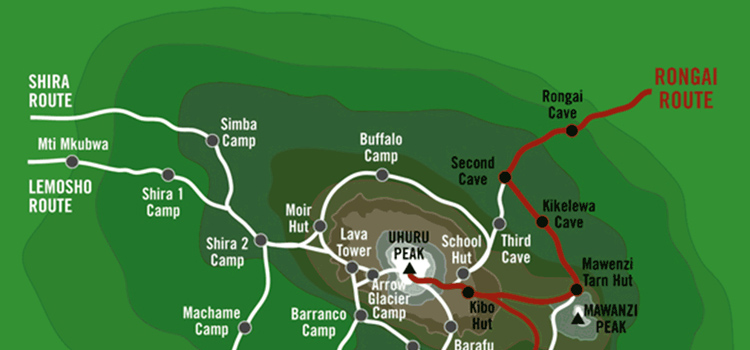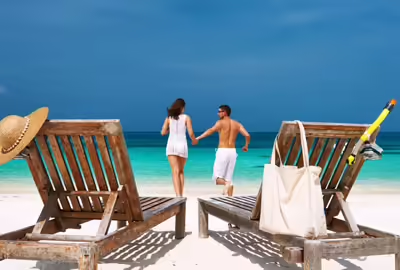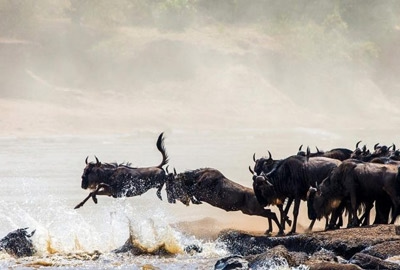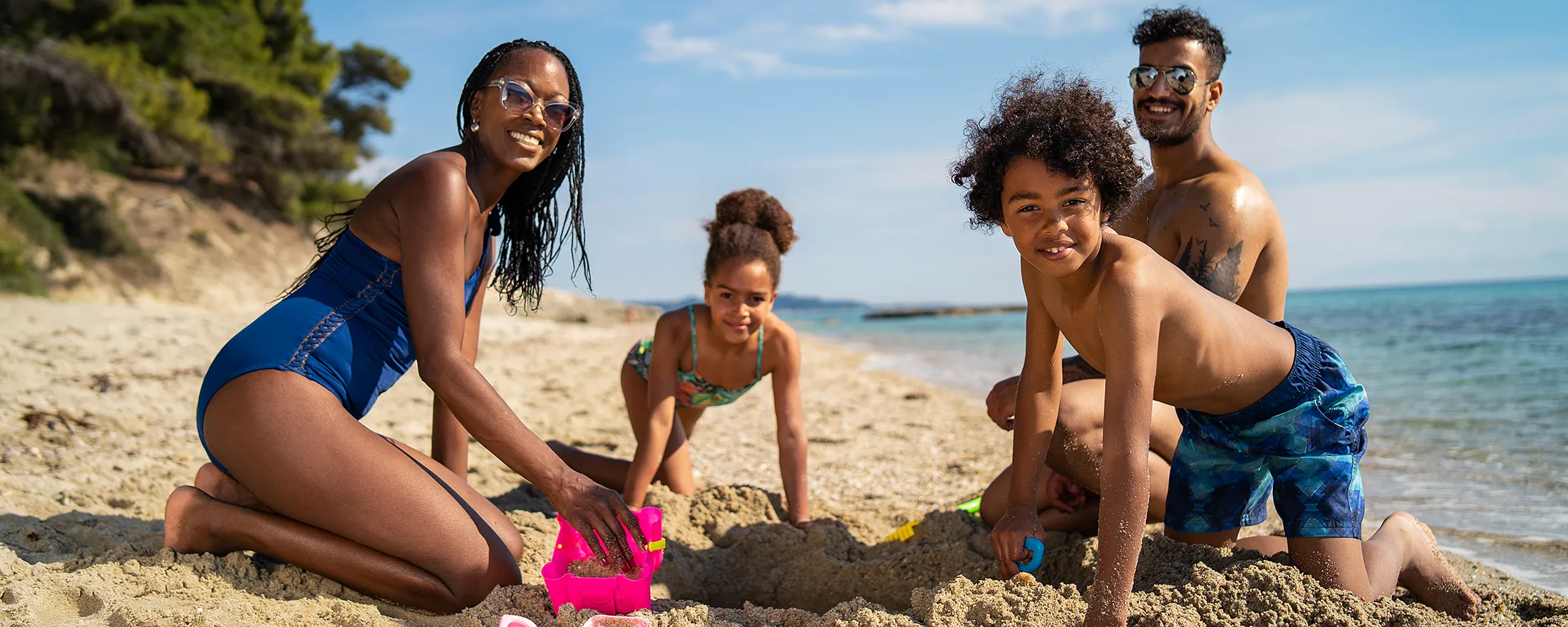Overview
8 Days Rongai Route
Rongai Route is the main route that approaches Kilimanjaro from the Kenyan side of the mountain in the north. Notwithstanding the way that grabbing commonness among climbers, Rongai has low traffic. It is the favoured route for those looking for a choice to the swarmed Marangu route, for the people who may need a continuously remote climb, and for the people who are Climbing Mount Kilimanjaro in the midst of the stormy season. Notwithstanding the way that the scene isn't as differed as to the western routes, Rongai makes up for this by experiencing clear wild zones for an impressive time span before joining the Marangu route at Kibo camp. However, the route is noticeably known for being one of the less beautiful Kilimanjaro Routes. This route descends down the Marangu route. Rongai is a humbly difficult route and is significantly recommended, especially for those with less climbing foundation.
There is only one route over on the north eastern side of the mountain, Rongai, which is usually a five night climb. This lesser known track may not e quite as spectacular as the western routes, but it does usually have far lower traffic than the other five night routes. Rongai Route retains a sense of unspoilt wilderness and offers a different perspective on Kilimanjaro by approaching it from the north. It is generally considered to be the easiest of the equality routes on the mountain. Rongai is the best route for people who are looking for a decent quality of Mount Kilimanjaro Climbing experience and are perhaps not absolutely confident about your fitness.

Day 1:
Pick up from Arusha town or Kilimanjaro International Airport and transfer to Moshi town, which is commonly known as the gateway to Mount Kilimanjaro. Half Board accommodation at a Base Hotel in Moshi.
Meal plan: Breakfast, Lunch & Dinner
Day 2:
Rongai Gate (1950m) – 1st Caves Camp (2600m) – Hiking time: 5 hours. Habitat: Montane forest
Register at the Marangu park gate with a transfer (approximately 2½ hours) to the Rongai trailhead. Meet your guide and porters before you begin your hike from the NaleMoru village. The small winding path crosses maize fields before entering pine forest, and then climbs gently though a forest. The road is not steep and the hike is not arduous rather a gentle hike through beautiful landscapes. You will have your first night cave camp at about 2,600 meters of the sea level. Here you will have a toilet and a wooden table with benches, but not hut. You can collect water just down the trail below First Cave.
Day 3:
Today, you will be heading up to the Kikelelwa Cave Camp located in a hight of 3,600 meters from the sea level. The hiking time would vary from 6-7 hours through the Moorlands. It is a hiking towards Kibo and en-route you would pass the second cave that lies above 3450 meter above the sea level. While hiking towards Kikelelwa Cave you must feel that really you are on a big mountain. For the water you have to wander downhill below the cave.
Day 4:
Kikelelwa Cave 3600) – Mawenzi Tarn Camp (4330m) – Hiking time: 3-4 hours – Habitat: Moorlands
A short but steep climb up grassy slopes offers superb views of this wilderness area. The vegetation zone ends shortly before you reach your next camp at Mawenzi Tarn spectacularly situated beneath the towering spires of Mawenzi. Spend the afternoon acclimatizing and exploring the area.
Day 5:
Mawenzi Tarn camp (4330m) Kibo hut (4700m) – Hiking time: 4-5hours – Habitat: Alpine desert
Continue ascending on the east side of Kibo crossing the saddle between Mawenzi and Kibo taking 4 to 5 hours to reach Kibo Hut. The remainder of the day is spent resting in preparation for the final ascent, which begins at midnight. Overnight at Kibo Camp.
Day 6:
Summit Attempt, Kibo hut (4700m) – Uhuru Peak (5895m) – Horombo Hut (3720m)
Hiking time: 8 hours to reach Uhuru, 6 hours to descend to Horombo.
Distance: 6 km’s ascent – 21 km’s descent – Habitat: Stone scree and ice-capped summit
You will rise around 23h30, and after some tea and biscuits you shuffle off into the night. This is where the going really gets tough. The first section of the trail consists of a ricky path to the Hans Meyer Cave (5150m), also a good resting spot. The path then zigzags up to Gillman’s point (5681m), which is located on the crater rim. Remember this requires the great physical and mental effort as the section is very steep with a lot of stone pieces. This is the most arduous section to the summit and you need to move slowly. From Gillman’s Point you will normally encounter snow all the way up to Uhuru peak (5895m), the highest point in Africa. Total exhilaration and satisfaction – you made it.
Weather condition on the summit is the key factor to decide how long you can stay on it for taking photographs before taking a 3 hours descending back to Kibo hut. If the weather condition is favourable then after a short rest you have to pack of all your gears to head down to Horombo hut: a three hours journey and this is the place where you will have your overnight stay. The return to Horombo hut will seem surprisingly fast compared to the ascent. The total time spent walking on this day is around 14 hours, so be prepared for a very tough day. Later in the evening you enjoy your last dinner (with soft drinks and beer for sale at the camp office) on the mountain and well-earned sleep, filled with memories and stirring emotions.
Day 7:
Descend through the rainforest to Mweka Gate, Complete park formalities. Collect summit certificates. Transfer back to your hotel in Moshi/Arusha. Celebrate your achievement and rest. Overnight at your hotel.
Day 8:
After breakfast, transfer back to Arusha town. End of our services.
- Airport pick up and drop off.
- 2 Nights Accommodation in Arusha on bed and breakfast bases.
- Professional, experienced guides.
- Fresh, healthy, nutritious food.
- Clean, purified drinking water.
- Hard working, team-oriented support staff.
- Fair wages to our employees.
- Quality, waterproof, four-season mountain hardware tents.
- Solid safety and crisis management procedures.
- Transfer to/from the Mountain.



